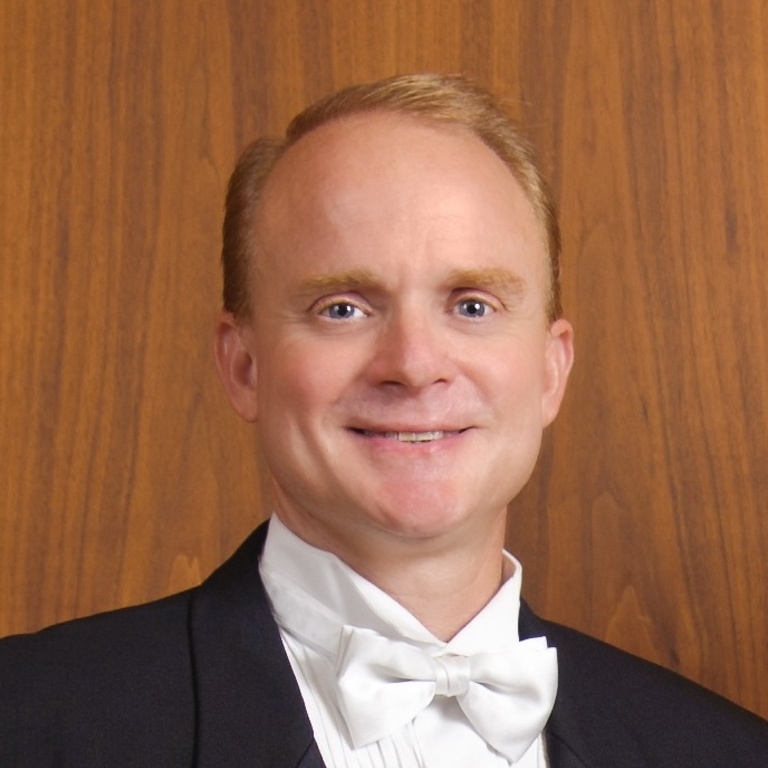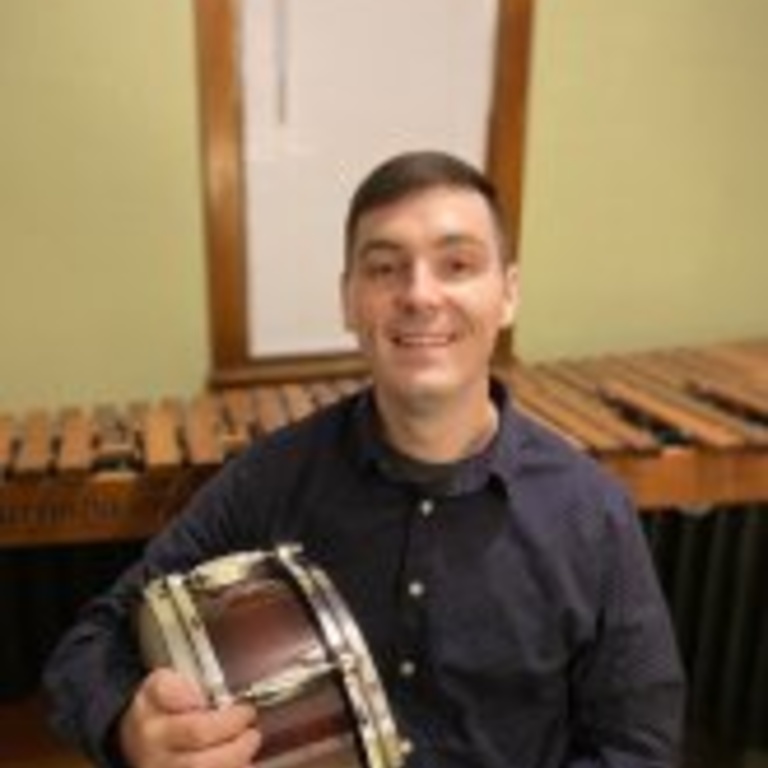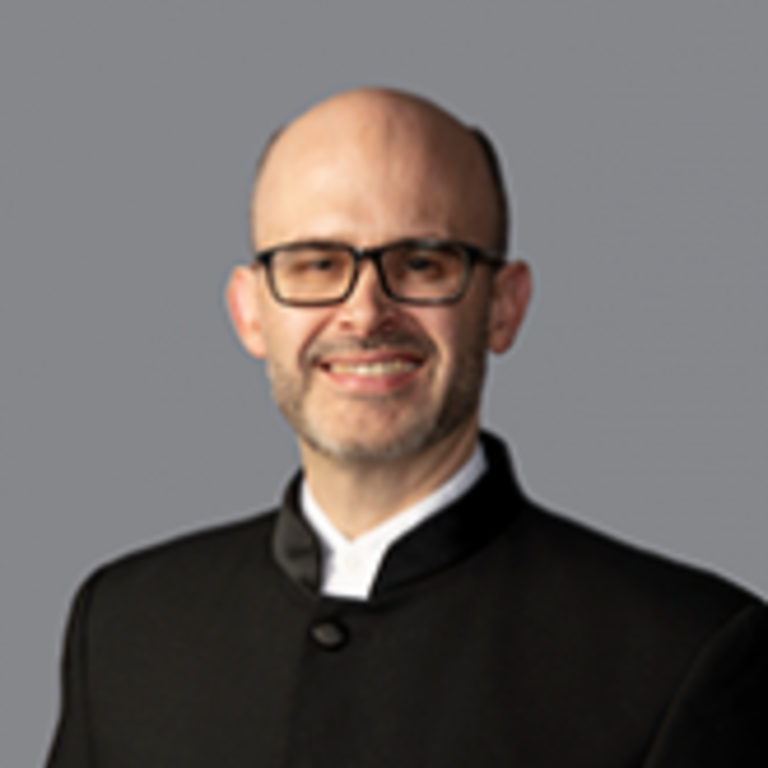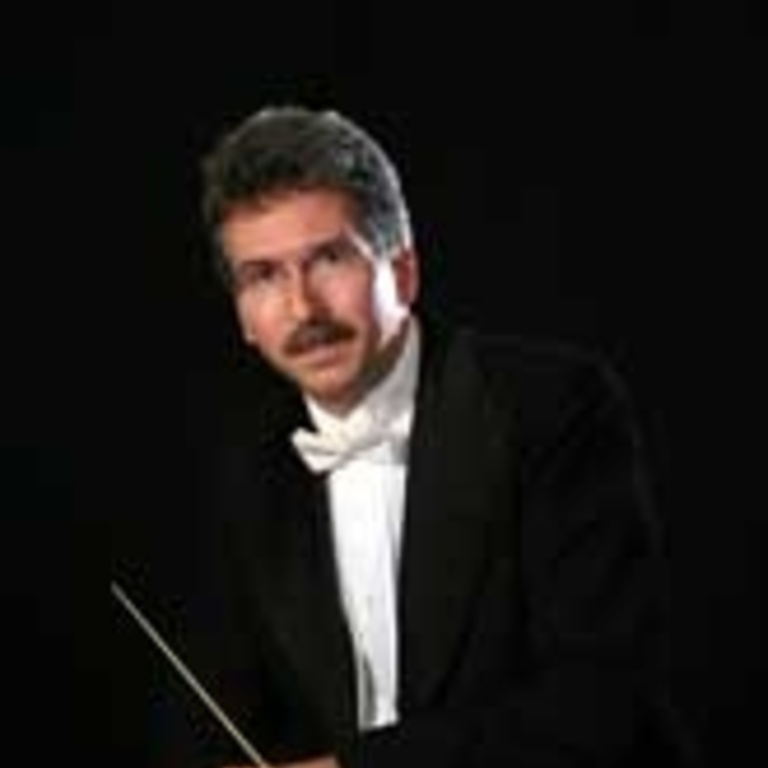Main navigation
Earn your DMA in orchestral conducting
The University of Iowa's orchestral conducting program trains the next generation of conductors for both the professional world and academia, depending on the profile and goals of each conductor.
There are two fully funded openings for the upcoming year, DMA and/or MA with a stipend (TA 25 percent and 50 percent available).
As podium time is critical for conducting students, they will have opportunities to conduct multiple ensembles: the University of Iowa Symphony Orchestra as assistant conductors in sectionals, full rehearsals, and run-throughs, and the Campus Symphony Orchestra. Each graduate student, depending on their availability, will also have at least one opportunity to assist and conduct one performance of an opera or musical theater performance.
During the studies, a serious emphasis is put on basic aural training such as score reading/singing, transpositions, knowledge of styles and instruments, lyric diction, inner hearing, and everything pertaining to becoming an excellent and competitive conductor.
The conducting student will also develop effective rehearsal techniques, create programs for educational and pops concerts, and receive expert guidance in applications for competitions, auditions, masterclasses, and jobs.
The curriculum offers a broad array of skills that prepare students for careers as an assistant to a music director, a music director, a youth symphony music director, a director of orchestral studies, etc.
The DMA in orchestral conducting requires 72 post-baccalaureate semester hours and a minimum of 39 graduate credits earned at the University of Iowa.
Contact the faculty
For more information, contact David Gompper, Interim Director of Orchestral Studies.
How to apply to the program
The deadline is Dec. 1, 2023, to submit all materials.
To be considered for this program, please submit:
- A written statement describing personal interest in a graduate degree in orchestral conducting, plus expectations and aspirations following degree studies.
- A resume that includes performing instruments, academic information, professional experiences as a performer and/or conductor, and references (email and phone number to be included).
- A Vimeo or Youtube link (without password) to a 10–15-minute video (up to 4 contrasting excerpts), in frontal view, featuring if possible both rehearsal and performance.
- A Vimeo or Youtube link (without password) to a 2-minute video introducing yourself and stating why you decided to become a conductor.
Successful applicants being considered for a TA will be invited for an audition on campus in January or February.
Requirements and program planning
Requirements and program planning
- Introduction to Graduate Study in Music (MUS:5300), 2 semester hours
- Seminar in Music Research (MUS:7140), 2 semester hours
Students exempt from MUS:5200 through the advisory examination in music theory must complete 6 semester hours from the following:
- Counterpoint Before 1600 (MUS:4200), 3 semester hours
- Counterpoint After 1600 (MUS:4201), 3 semester hours
- Jazz Theory (MUS:4730), 3 semester hours
- Tonal Analysis (MUS:5235), 3 semester hours
- Non-Tonal Analysis (MUS:5236), 3 semester hours
- Analysis of Popular Music (MUS:5237), 3 semester hours
- Special Topics in Theory and Analysis (MUS:5240), 3 semester hours
- History of Ideas in Music (MUS:6210), 3 semester hours
- Theoretical Approaches to Music (MUS:6211), 3 semester hours
- Theory Pedagogy (MUS:6215), 3 semester hours
- Advanced Tonal Theory and Analysis (MUS:6250), 3 semester hours
- Advanced Non-Tonal Theory and Analysis (MUS:6251), 3 semester hours
- Advanced Theory and Analysis of Popular Music (MUS:6252), 3 semester hours
Nine semester hours, up to 6 semester hours can be counted from the master's degree, upon written approval of the Associate Director for Graduate Studies). Students: select from the courses listed below.
Only one 4000-level course (taken at the University of Iowa or equivalent transferred in from another institution) may count toward the 9 semester hours required.
- Music and Gender (MUS:4320), 3 semester hours
- Medieval and Renaissance Music (MUS:4325), 3 semester hours
- Baroque Music (MUS:4330), 3 semester hours
- 18th-Century Music (MUS:4335), 3 semester hours
- 19th-Century Music (MUS:4340), 3 semester hours
- 20th-Century Music (MUS:4345), 3 semester hours
- Advanced Jazz History (MUS:4350), 3 semester hours
- American Music (MUS:4355), 3 semester hours
- Jazz Matters (MUS:4360), 3 semester hours
- Studies in Film and Music (MUS:4610), 3 semester hours
- Teaching Music, History, and Culture (MUS:6305), 3 semester hours
- Topics in Musicology (MUS:6310), 3 semester hours
- Historical Approaches to Music (MUS:6312), 3 semester hours
- Topics in Ethnomusicology (MUS:6314), 3 semester hours
- Foundations of Ethnomusicology (MUS:6315), 3 semester hours
- Renaissance Music Notations (MUS:6326), 3 semester hours
- Music Editing (MUS:6375), 3 semester hours
Ensemble enrollment based on consultation with the director of orchestral studies, cannot be an orchestra or marching band. Four semesters required, 1 semester hour each (four semester hours)
34-41 semester hours of these courses are required.
- Graduate Secondary Performance lessons (instrument/voice) based on consultation with the Director of Orchestral Studies – two semesters required (1 semester hour each)
- Graduate Diction (MUS:5510:0002): offered fall only, 2-semester hourss
- Advanced Orchestral Conducting (MUS:6580): six semesters required, 12 semester hours
- Score Reading (MUS:6585), 1 semester hour
- Advanced Orchestral Literature/Professional Development (MUS:6586 ): six semesters required; 2 semester hours each (12 semester hours)
- D.M.A. Recital (MUS:7900), three recitals required, (3-6 semester hours)
- Note: the first DMA recital also functions as a qualifying recital. In the event this recital is unacceptable, an additional recital with a different repertoire may be given at the discretion of the examining committee.
- DMA Essay/Thesis (MUS:7970 ), 2 semester hours, minimum; 6 semester hours maximum. If a student started coursework prior to fall 2019, the range is 4-8 semester hours.
French or German proficiency and other languages must be approved by the band area. Students can satisfy the proficiency requirement in one of the following ways:
- Completion of the fourth semester of the language at the undergraduate level with at least a grade of B, within the last 10 years.
- Testing out of the fourth semester of the language at the University of Iowa. Placement exams in French, German, and Italian are offered each semester by the UI Examination Service, 300 Jefferson Bldg.
- Completion of graduate language courses 009:205 and 206 French for Reading and Research or 013:128 German Reading for Graduate Students (prerequisite 013:012, 013, or 014).
Or
Secondary Area of Music: Minimum of 6 semester hours.
Create your academic path
You'll find degree overviews, requirements, course lists, academic plans, and more to help you plan your education and explore your possibilities.
Current course list
The MyUI Schedule displays registered courses for a particular session and is available to enrolled students. The list view includes course instructors, time and location, and features to drop courses or change sections.
Add a minor
Any student admitted to a graduate degree program in the School of Music may add a theory pedagogy minor by completing the required courses.
Conducting faculty

Eric W. Bush

Richard Mark Heidel

Nick Miller

David Puderbaugh

Timothy Stalter
Practice and perform
Need to book a music room, request an accompanist, check out audition information, rent a locker, or use a recording studio? Visit the Music Callboard for all scheduling and policy information.